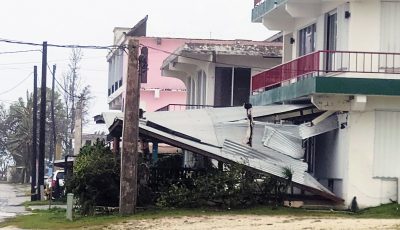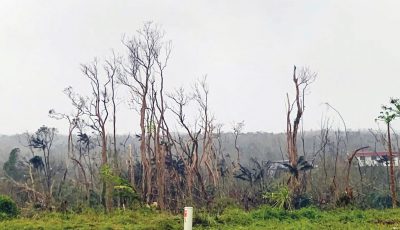Police response to rape crucial for justice

Police officers from Fiji and Tonga participate in the Police Regional Training Program at the Hexagon Hotel in Nadi, Fiji. (Contributed Photo)
NADI, Fiji—Rape is the most traumatizing crime, short of murder, that can be committed against a person and police officers need to be sensitive to this when dealing with survivors.
Police officers from 11 Pacific countries have been undergoing a two-week training course on gender, violence against women and legal literacy on laws against gender-based violence in Nadi, Fiji.
Funded by the Australian Federal Police and facilitated by the Fiji Women’s Crisis Center, the intensive workshop gathered 30 officers who have been learning about gender inequalities, the causes of violence against women and how to sensitively respond to survivors of such offenses.
The officers discussed the definition of rape, why it happens (the exercise of power and control due to gender inequalities), and the impact of rape on survivors. Rape is about power and control with sex being the weapon used to humiliate, intimidate and create fear, the officers heard.
When survivors of rape presented themselves at police stations, the reception they received and how officers responded to them were critical if justice for the survivor was to be achieved and for the perpetrator to be punished for the crime.
Research shows that only a small proportion of sexual assault and rape are ever reported to the authorities so police officers should not do anything that would re-victimize a survivor—mostly women, girls and boys—when they gather up the courage to come to a police station.
Making comments or asking questions that implied a woman who reports a rape was somehow at fault or was lying was common, although the officers attending the course now understand this further erodes a woman’s trust in the police and discourages her from seeking justice.
An enduring myth about a cause of rape is that dressing and behavior led to rape; however, in any given country victim-survivors of rape ranged from babies, girls and boys to women of all ages. Even dead women were not safe from being violated, with documented cases of necrophilia following disasters such as the Aitape tsunami in Papua New Guinea in 1998.
The officers shared their experiences of dealing with survivors with a common challenge being the collection and preservation of evidence. Survivors of rape often felt the urge to wash themselves so officers were reminded of the urgency of collecting evidence from the person’s body before allowing the person to shower.
Investigation tools such as “rape kits” were unavailable in many police stations although they were critical in helping police officers solve rape offenses and secure convictions.
Women do not all react to or cope with rape the same way; not all survivors will be distraught and sobbing. Officers needed to recognize that some women may appear calm and collected even though they may be suffering from internal turmoil. A single incident of rape has vast ripple effects on the woman, her family and community.
Reforming discriminatory legislation is vital in combating sexual offenses but it was important that legislation was gender-sensitive rather than just gender-neutral.
Even in countries that had reformed their laws or ratified the UN Convention on the Elimination of Discrimination Against Women discriminatory legal provisions such as corroboration of complaints of sexual assault or past sexual history of a complainant were sometimes applied.
The workshop ends on Friday, Nov. 18, 2016. (PR)



























